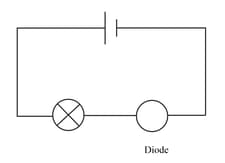Look at the diagram of circuit b. Yuri reads in a textbook that the current in each branch of a circuit adds up. This would mean that:
Current from the cell = current in upper branch + current in lower branch
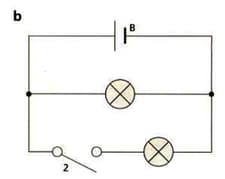
Yuri only has one of these components. Describe how Yuri could use this component to test the statement in the textbook.
Current from the cell = current in upper branch + current in lower branch


Important Questions on Electrostatics and Electric Currents
The electric circuits in houses include circuit breakers or fuses. These are devices that stop the current if there is a fault.
Describe how a circuit breaker or a fuse can stop a current from flowing.
The electric circuits in houses include circuit breakers or fuses. These are devices that stop the current if there is a fault.
Explain why a circuit breaker or fuse must always be connected in series with the devices connected to a circuit. What could happen if a circuit breaker was connected in parallel with the device that developed a fault?
Look at the diagram below. Complete the circuit so that all the components are complete and connected. Use just one straight connecting wire. Note that you do not need to draw the switches as closed.
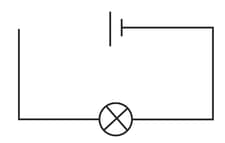
Look at the diagram below. Complete the circuit so that all the components are complete and connected. Use just one straight connecting wire. Note that you do not need to draw the switches as closed.
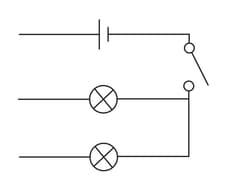
Look at the diagram below. Complete the circuit so that all the components are complete and connected. Use components to complete the circuit. Note that you do not need to draw the switches as closed.
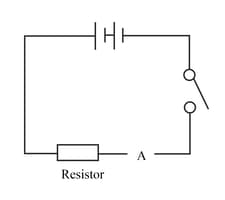
Look at the diagram below. Complete the circuit so that all the components are complete and connected. Use components to complete the circuit. Note that you do not need to draw the switches as closed.
